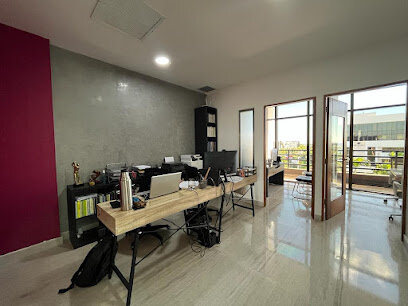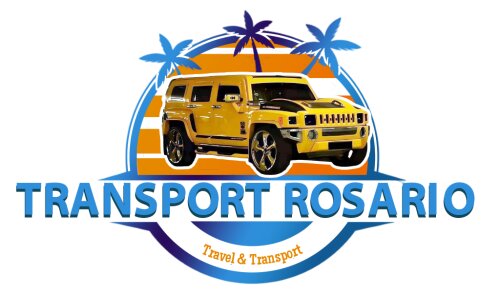Best Labor Law Lawyers in Punta Cana
Share your needs with us, get contacted by law firms.
Free. Takes 2 min.
List of the best lawyers in Punta Cana, Dominican Republic
About Labor Law in Punta Cana, Dominican Republic
Labor law in Punta Cana, as with the rest of the Dominican Republic, is governed by the Dominican Labor Code. This body of law governs the rights and obligations of workers and employers within the country. It focuses on ensuring fair labor practices, decent working conditions, and the protection of workers' rights. The Dominican Labor Code outlines regulations regarding employment contracts, minimum wage, working hours, overtime pay, safety conditions, social security, and more. Punta Cana, being a prime tourist destination, highlights specific labor dynamics, particularly in the hospitality and service industries.
Why You May Need a Lawyer
There are several situations where individuals or businesses in Punta Cana may seek legal advice in labor law:
- **Employment Disputes**: Conflicts over wrongful termination, discrimination, or harassment at the workplace are common reasons people seek legal assistance. A lawyer can help navigate the complexities of filing complaints and seeking reparations.
- **Contractual Clarity**: Understanding and negotiating employment contracts can be challenging. Legal guidance ensures that the terms are fair and in compliance with the law.
- **Workplace Safety**: In cases of workplace accidents or violations of safety standards, legal counsel can help address issues of liability and compensation.
- **Labor Regulation Compliance**: Businesses often require assistance in ensuring compliance with all labor regulations to avoid penalties or disputes.
- **Collective Bargaining**: In cases where employees wish to form or join unions, or engage in collective bargaining, legal advice is crucial.
Local Laws Overview
Several key aspects of the Dominican Labor Code are particularly relevant in Punta Cana:
- **Working Hours**: The standard maximum working hours are generally 44 hours per week. Overtime pay is required for hours worked beyond this limit.
- **Minimum Wage**: The minimum wage is determined by law and varies by industry, which is particularly important given the prevalence of the hospitality sector in Punta Cana.
- **Termination and Severance**: The law outlines specific provisions for lawful termination of employment and mandates severance payments in many situations.
- **Employee Rights**: Employees have the right to a safe working environment, proper remuneration, and freedom from discrimination.
- **Social Security**: Employers must contribute to the national social security system, which provides benefits for healthcare, retirement, and accidents.
Frequently Asked Questions
1. What is the legal minimum wage in Punta Cana?
The minimum wage in Punta Cana is part of the national wage system and varies depending on the sector and size of the business. It's important to consult the latest government publication for accurate figures.
2. How are overtime wages calculated?
Overtime is typically calculated at 1.35 times the normal hourly wage for hours worked beyond the standard 44-hour workweek.
3. Can I be fired without cause?
Employers can terminate employment without cause, but they must provide notice and severance pay per the Dominican Labor Code.
4. What should I do if I experience discrimination at work?
If you encounter discrimination, it's important to document incidents and seek legal advice to understand your rights and the appropriate steps to take.
5. What are my rights during maternity leave?
The Labor Code grants pregnant employees maternity leave, including paid leave before and after childbirth. Employers must not terminate employment for reasons related to pregnancy.
6. Are employment contracts mandatory?
While oral agreements can be legally binding, written contracts are strongly advised to clarify roles, responsibilities, and conditions.
7. How is severance calculated?
Severance pay depends on factors such as length of employment, with different calculations applicable for resignation, termination, or other circumstances.
8. What steps should an employer take to ensure compliance with safety standards?
Employers must provide a safe working environment, conduct regular safety training, and adhere to industry-specific regulations.
9. How do I join a union?
Employees have the right to form or join unions. Procedures vary, but generally involve sign-up processes and formal application to respective entities.
10. Who enforces labor laws in Punta Cana?
The Ministry of Labor is responsible for enforcing labor laws and addressing violations in the Dominican Republic, including Punta Cana.
Additional Resources
- **Ministry of Labor**: Provides comprehensive resources and support for workers and employers.
- **Chamber of Commerce and Production**: Offers guidance and support for businesses on labor regulations and compliance.
- **Local Law Firms**: Specializing in labor law, local firms can offer legal support tailored to Punta Cana's unique working environment.
Next Steps
1. **Identify Your Needs**: Understand the specific labor law issue you are facing, whether it is an employment dispute, contract issue, or compliance concern.
2. **Documentation**: Collect all relevant documents such as employment contracts, correspondence, and any evidence related to your situation.
3. **Consult a Professional**: Contact a labor law attorney or legal advice center. Ensure they have experience with local labor laws and issues particular to the Punta Cana region.
4. **Take Action**: Follow the advice provided by your legal counsel, whether that involves negotiating a resolution, filing a complaint, or pursuing further legal action.
5. **Stay Informed**: Keep up-to-date with any changes to labor laws, regulations, or practices that may affect your rights or obligations.
Lawzana helps you find the best lawyers and law firms in Punta Cana through a curated and pre-screened list of qualified legal professionals. Our platform offers rankings and detailed profiles of attorneys and law firms, allowing you to compare based on practice areas, including Labor Law, experience, and client feedback.
Each profile includes a description of the firm's areas of practice, client reviews, team members and partners, year of establishment, spoken languages, office locations, contact information, social media presence, and any published articles or resources. Most firms on our platform speak English and are experienced in both local and international legal matters.
Get a quote from top-rated law firms in Punta Cana, Dominican Republic — quickly, securely, and without unnecessary hassle.
Disclaimer:
The information provided on this page is for general informational purposes only and does not constitute legal advice. While we strive to ensure the accuracy and relevance of the content, legal information may change over time, and interpretations of the law can vary. You should always consult with a qualified legal professional for advice specific to your situation.
We disclaim all liability for actions taken or not taken based on the content of this page. If you believe any information is incorrect or outdated, please contact us, and we will review and update it where appropriate.









